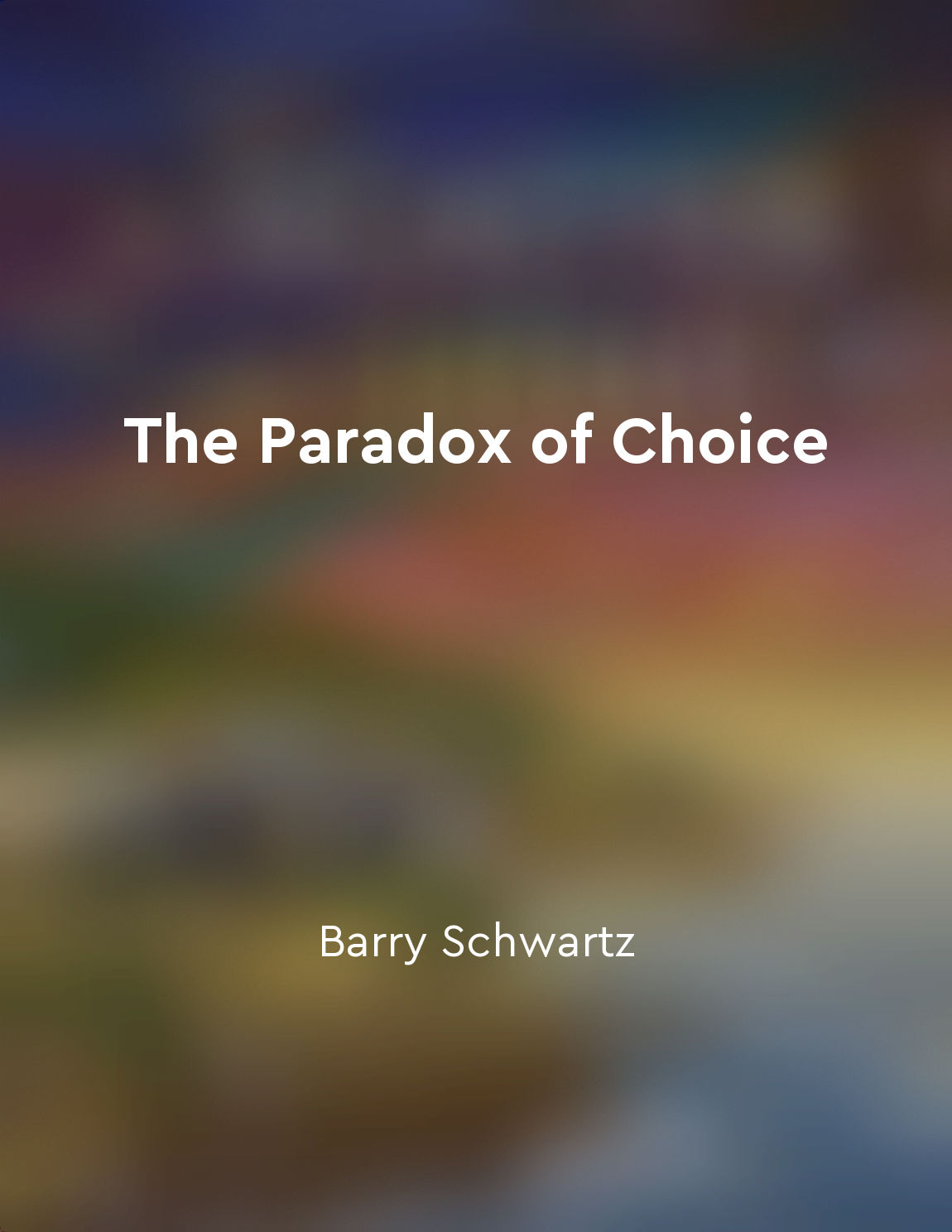Limited options can simplify decisionmaking processes from "summary" of The Paradox of Choice by Barry Schwartz
When faced with an overwhelming number of options, decision-making can become an arduous task. The paradox of choice lies in the belief that more options lead to greater freedom and autonomy, but in reality, too many choices can lead to decision paralysis. This is because with an abundance of options, we are constantly comparing and evaluating each choice, which can be mentally exhausting and time-consuming. Limited options, on the other hand, can simplify the decision-making process by reducing the cognitive load required to evaluate each choice. When there are fewer options to consider, we can focus more easily on the relevant criteria that matter most to us. This allows us to make a decision based on our preferences and values, rather than being overwhelmed by extraneous information. Having limited options can also lead to greater satisfaction with the chosen option. When we have fewer alternatives to compare our choice to, we are less likely to experience regret or doubt about our decision. This is because we are more confident in our selection when there are fewer distractions or potential trade-offs to consider. Moreover, limited options can help to alleviate the fear of making the wrong decision. With fewer choices, the stakes feel lower, and we are more willing to take risks or make a commitment. This can lead to a sense of empowerment and agency in our decision-making, as we feel more in control of the outcomes.- While the abundance of choice may seem appealing, limited options can actually simplify the decision-making process and lead to more satisfying outcomes. By reducing the cognitive load, increasing satisfaction, and alleviating fear, having fewer options can help us make decisions that align with our values and preferences. Ultimately, limiting our choices can lead to a more fulfilling and confident decision-making experience.


